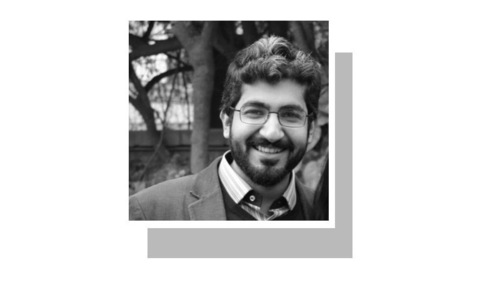It’s not that states and regimes are afraid of books per se. They in fact dread certain type of books that on the one hand critique, oppose and reject their worldview and on the other offer an alternative vision.
The bill recently passed by the elected members of Punjab Assembly is not aimed at eliminating books but rather controlling their production, distribution, selling and dissemination in the face of advanced technology which makes the intellectual, academic and creative assets from the past and present easily accessible.
Also read: A ban on good sense
In our age message and medium — whether you agree or not with the assertion that the medium is the message — together and separately pose a serious threat to a society like ours which essentially relies on tradition and authority rather than on democratic norms and intellectual independence. The phenomenon has historical roots; neither the imposition of censor is something new nor the resistance against it. Our intellectual and spiritual past is a testimony to it. We find that certain type of books — knowledge — patronised and promoted by ruling elites of bygone eras in cahoots with clergy and hired scholars has a long history.
The first instance is quoted by Professor Malti J Shendge in her remarkable book “The Civilized Demons: The Harappans in Rig-Veda” from Satapathabrahmana. The story told in a mythopoeic manner tells us how devas [Aryans] deprived Asuras [people of Harappa] of their speech. Devas inherited the mind and Asuras the speech. Vac, a woman representing speech, was deceived by Sacrifice, a male who represented mind, through a trick and was consumed in fire.
“The burning of the language in the sacrificial fire may have different implications: it may indicate the destruction of the speakers of the language, which was done before or it might indicate the burning of written material and a subsequent ban on rewriting the compositions”, explains Prof Malti. This happened way back in time when incoming primitive Arya took on the civilised Harappans. The episode unmistakably shows us a group’s successful attempt to control its opponent by destroying its language which implied the destruction of written material and books in that language. This was the first example of extreme censor in our history which was imposed with violence. After this the victorious must have imposed its own language on the vanquished and introduced the material written in it to establish its sway.
There are two aspects to this historical problem of censor and regulation; one, suppression of intellectual content deemed subversive that challenges the dominant worldview/ narrative, 2, production and promotion of material which is conformist in nature and supportive of the system in place.
In our not too distant a past we see Guru Nanak who squarely deals with the problem. He exposes the conformist nature of intellectual practice patronised by elite and popularised by its cohorts to propagate its worldview. It’s a comprehensive critique of traditional knowledge, learning, pedagogy and outcomes that help perpetuate status quo. “Reading and reciting carts we encumber / reading and reciting we amass to a fault / reading and reciting ourselves we fetter / reading and reciting we hoard in a vault / we read so much year after year / we read all month long / a lifetime in reading we persevere / with every breath we recite lifelong / Nanak the reckoning’s on one matter / all else is blathering; egotism is a blather [translation; Muzaffar Ghaffaar]”, says Guru Nanak.
Against such a practice he juxtaposes his vision of intellectual work which usually suffers repression at the hands of ruling elite. His critique of what is approved by the power structure strongly offers an alternative. For him is sacred not just creative expression but the whole process of creation. He invests the process with sacredness because it entails moral and social responsibility which is explicitly hinted at in the last line. “Praise be the paper / praised be the pen / praised be the pot / praised be the ink / praised be the writer who writes the truth”, Guru Nanak declares. It’s precisely this kind of intellectual and creative output that is the bane of the ruling clique which historically follows the policy of concealment i.e. hiding the truth to protect the unenviable existent.
Punjab government’s recent move to ban the books which are not to its liking and its announcement to control the whole process of knowledge generation and dissemination fits in with the historical trend of non-democratic regimes which fear the power of dissent and creative chaos of plurality of views. All they want is something standard that shuns deviation and reinforces in some way what is within the prevalent ideological mainstream.
Poet Sultan Bahu hits the nail on the head when he exposes the real nature of knowledge employed in the service of the powerful. “Equipped with readings from the tomes they ravish the rulers / what an outcome of their studies! /off stinking milk never ever yields butter even if boiled [Parh parh ilm maluk rijhawan, kia hoya iss parhyan hu /harghiz mukh anmool naa avey phittey dudh ke karhyan hu]”?
Scholars and intellectuals in the service of panjandrums are off stinking milk for Sultan Bahu. But on the contrary the system relishes the intellectuals who are trained not to produce any thing that challenges what underpins its base and superstructure. Anything produced or created in any form that doubts the given and accepted is bound to raise hackles and end up being censored. The very act of censorship explicitly hints at the power of what is being censored and implicitly accepts the validity of what it otherwise declares invalid for not being able to engage with it. — soofi01@hotmail.com
Published in Dawn, August 10th, 2020















































